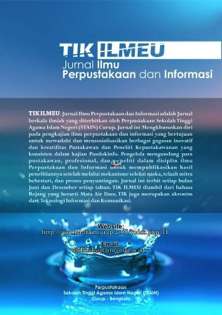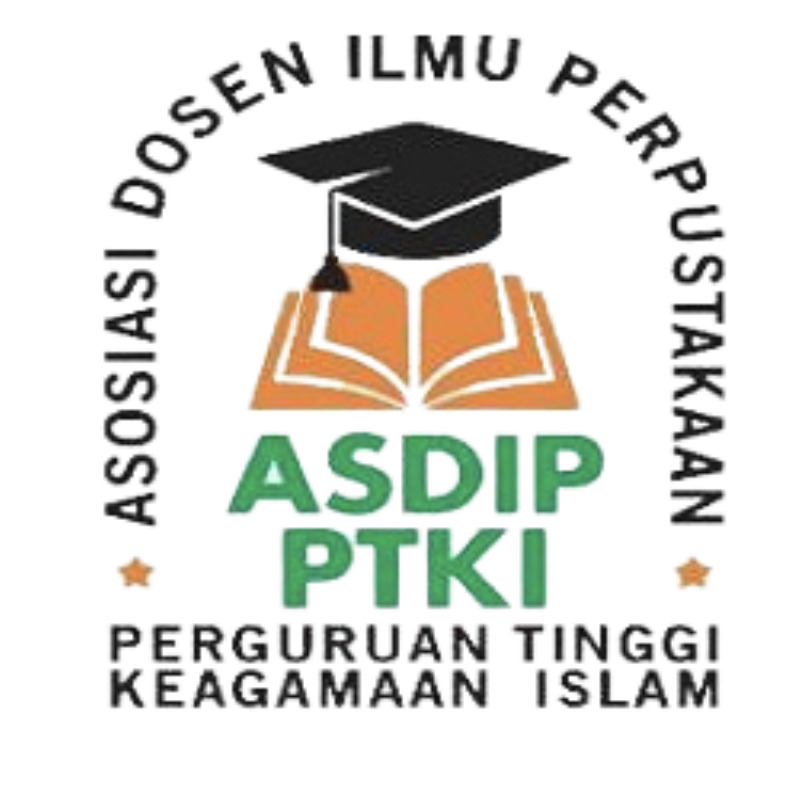Pembuatan Model Pemberdayaan Masyarakat Pesisir Sesuai Profesi Menggunakan Pendekatan Perpustakaan Berbasis Inklusi Sosial
DOI:
https://doi.org/10.29240/tik.v7i1.6714Keywords:
Coastal Communities, Empowerment Model, Social Inclusion, LibraryAbstract
This research explains the development of a model for empowering coastal communities based on their professions using a socially inclusive library approach. The case study was conducted in Banten Lama, Kota Serang, Banten Province. The objective of this research is to find an appropriate model for empowering the community, tailored to the existing professions in coastal communities. The socially inclusive library approach is employed as a means to empower the community and improve their well-being. The research method used in this study is descriptive qualitative research, focusing on the functions and roles of libraries in increasing community engagement in terms of well-being. The findings of this research present a model for empowering coastal communities based on their respective professions. In the smallest context, the library is represented by a community reading park, which serves as an agent of change in the coastal community. The conclusion in this study is that the social inclusion-based library model is adapted to community professions adapted to the support of collaboration between regional libraries, village libraries and community reading library. In addition, this community empowerment model is described in three models according to the profession, namely the community empowerment model for the fisherman profession, the trade profession and the tour guide profession
Downloads
References
Anggito, A. dan J. S. (2018). Metodologi Penelitian Kualitatif. CV Jejak.
Badan Pusat Statistik. (2019). Kecamatan Kasemen Dalam Angka 2019.
Diana, M., Yanto, Y., & Pirmansyah, R. (2021). Pemberdayaan Masyarakat melalui Perpustakaan Desa Berbasis Inklusi Sosial (Studi Kasus Perpustakaan “Sumber Ilmu†Desa Marga Sakti Kabupaten Musirawas). Tik Ilmeu : Jurnal Ilmu Perpustakaan Dan Informasi, 5(1), 57. https://doi.org/10.29240/tik.v5i1.2389
Husna, A. N., Yuliani, D., Rachmawati, T., Anggraini, D. E., Anwar, R., & Utomo, R. (2021). Program Literasi Digital untuk Pengembangan Perpustakaan Berbasis Inklusi Sosial di Desa Sedayu, Muntilan, Magelang. Community Empowerment, 6(2), 156–166. https://doi.org/10.31603/ce.4259
Kurniasih, R. I., & Saefullah, R. S. (2021). Inklusi Sosial Sebagai Transformasi Layanan di Perpustakaan Daerah Karanganyar. Lentera Pustaka: Jurnal Kajian Ilmu Perpustakaan, Informasi Dan Kearsipan, 7(2), 149–160. https://doi.org/10.14710/lenpust.v7i2.34599
Kurniawan, R. A., Resmanda, S. L., Raharjo, S. T., Resnawaty, R., & Irfan, M. (2020). Implementing Corporate Social Responsibility (CSR) Dalam Bidang Pendidikan Melalui Pembangunan dan Pengembangan Perpustakaan. The Ashgate Research Companion to Corporate Social Responsibility, 280–295. https://doi.org/10.33096/paradoks.v2i2.319
Mhd Ardi Wiranda, N. A. dan R. K. A. (2022). Strategi Transformasi Perpustakaan Berbasis Inklusi Sosial. LIBRIA, 14(2), 98–121.
Nashihuddin, W., & Suryono, F. (2018). Dalam Menghadapi Disrupsi Profesi Di Era Library 4 . 0 : Sebuah Literatur Review. Khizanah Al-Hikmah : Jurnal Ilmu Perpustakaan, Informasi, Dan Kearsipan, 6(2), 86–97. http://journal.uin-alauddin.ac.id/index.php/khizanah-al-hikmah/article/view/5922
Prasetyo, W. D., & Utami, D. (2020). Penguatan Perpustakaan Untuk Pembangunan: Sebuah Konsep Transformasi Berbasis Inklusi Sosial. Jurnal IPI (Ikatan Pustakawan Indonesia), 5(2), 293–299. http://ipi.web.id/jurnal/index.php/jurnalipi/article/view/45
Rahim, M., Tahir, M., & Rumbia, W. A. (2014). Model Pemberdayaan Masyarakat di Wilayah Pesisir dalam Menanggulangi Kemiskinan di Kabupaten Buton, Sulawesi Tenggara. The Winners, 15(1), 23. https://doi.org/10.21512/tw.v15i1.633
Rhoni, R. (2018). Strategi Pustakawan Membangun Kreativitas di Era Digital (Studi di perpustakaan STAIN Curup). Al-Maktabah, 17(9), 1689–1699.
Rodin, R. (2014). Penerapan Knowledge Management Di Perpustakaan ( Studi Kasus di Perpustakaan STAIN Curup ). Khizanah Al-Hikmah, 1(1), 35–46.
Rustanto, B. (2015). Penelitian Kualitatif Pekerjaan Sosial. Remaja Rosdakarya.
Sardjoko, S. (2018). Kebijakan Pembangunan Perpustakaan untuk Peningkatan Kesejahteraan dalam RKP 2019. http://lib.um.ac.id/index.php/2018/03/27/download-pdf-bahan-paparan-rakornas-perpustakaan-2018/
Tuasamu, E. (2019). Transformasi Layanan Perpustakaan untuk Kesejahteraan Masyarakat. Https://Www.Perpusnas.Go.Id/. https://www.perpusnas.go.id/en/berita/-transformasi-layanan-perpustakaan-untuk-kesejahteraan-masyarakat-
Yuliant, R. (2018). Open Access dalam Membangun Masyarakat Literat untuk Mendukung Pencapaian Pembangunan Berkelanjutan. https://openlibrary.telkomuniversity.ac.id/pustaka/files/143344/article_f/open-access-dalam-membangun-masyarakat-literat-untuk-mendukung-pencapaian-pembangunan-berkelanjutan.pdf
Downloads
Published
Issue
Section
Citation Check
License
Authors who publish with Tik Ilmeu : Jurnal Ilmu Perpustakaan dan Informasi agree to the following terms:
- Authors retain copyright and grant the journal right of first publication with the work simultaneously licensed under a Creative Commons Attribution-NonCommercial-ShareAlike 4.0 International License (CC BY-NC-SA 4.0) that allows others to share the work with an acknowledgment of the work's authorship and initial publication in this journal.
- Authors are able to enter into separate, additional contractual arrangements for the non-exclusive distribution of the journal's published version of the work (e.g., post it to an institutional repository or publish it in a book), with an acknowledgment of its initial publication in this journal.
- Authors are permitted and encouraged to post their work online (e.g., in institutional repositories or on their website) prior to and during the submission process, as it can lead to productive exchanges, as well as earlier and greater citation of published work (See The Effect of Open Access).







 This work is licensed under a
This work is licensed under a 